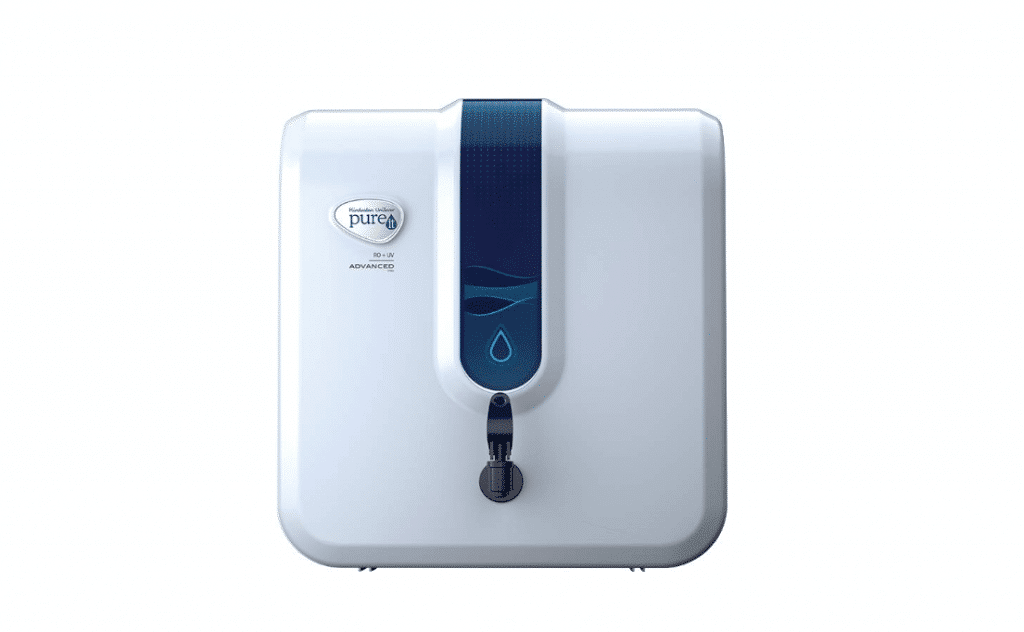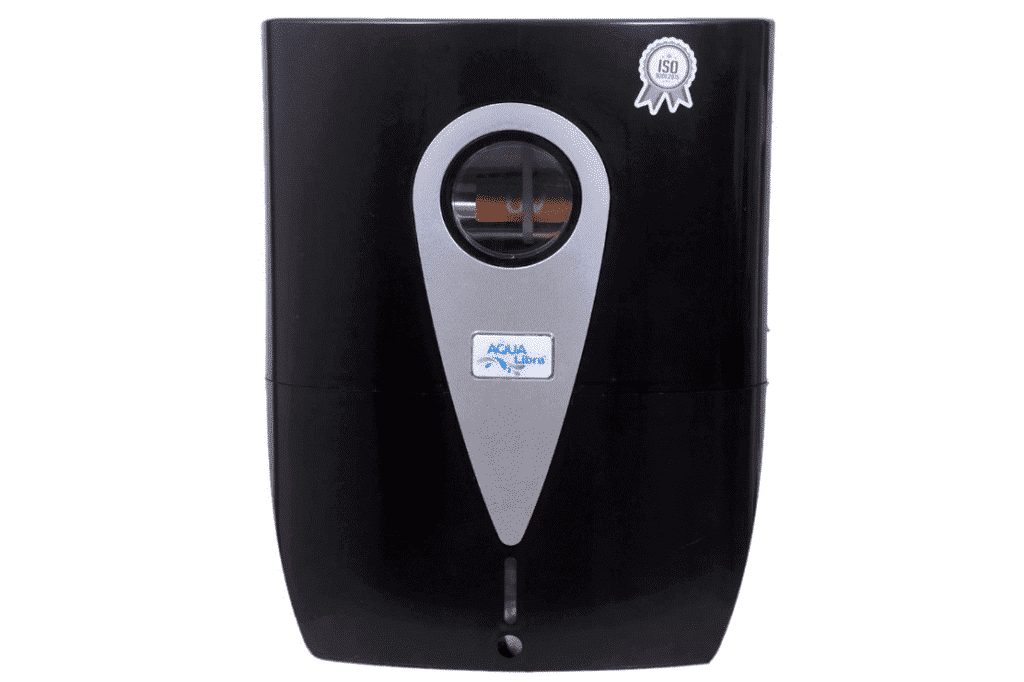What Is An UV Water Purifier
A UV water filter makes use of UV rays or ultraviolet rays. As we all know, water contains various kinds of bacteria, viruses, and other molecular harmful molecular organisms. If they do not get treated properly, it can cause health problems among consumers.
To avoid any health issue, UV water filters have an UV lamp inside. This UV lamp provides ultraviolet light. The ultraviolet light kills all the germs and bacteria present in water. Things make it safe for drinking as well as for other designated purposes. Hence, between UV and UF, UV is preferred more.
Related Reading:
What Is An UF Water Purifier?
An Uf water purifier is the simplest of all water purifiers. It has a single uf filter membrane. The membrane is semipermeable. It allows the solvent to pass through. The larger molecules of harmful foreign substances get drained out of the drainage pipe. It is suitable in areas where the tap water gets adequately treated. The uf filter water purifier has a limited number of designs. Not many people use it now.
The companies that manufacture it stick to one particular structure as far as all the models are concerned. The uf purification process is the most basic when we are comparing difference between RO UV and UF. They are inexpensive and usually have moderate market demand.

RO v/s UV v/s UF – Which Water Purifier is the Best?
These are the three main ways of water purification. Reverse osmosis is a relatively new phenomenon. Ultraviolet rays and Ultra-filter technology-these two techniques are well established in the field of water purification. The UV ray water purifiers have a UV ray bulb inside. This kills the harmful microorganisms like bacteria and viruses present inside the water. However, after they are killed they remain in the treated water.
Moreover, UV rays cannot kill the dissolved impurities present in water. In comparison to that, reverse osmosis technology is capable of killing the dissolved impurities by making the flow against the direction of osmosis across a semipermeable membrane. This happens due to the hydrostatic pressure, which is greater than the osmotic pressure.
The Uv filter technology is relatively old. The machines can run without electricity. The Uv filter consists of semi-permeable membranes. This membrane allows the passage of water and retains the microorganisms. All the dangerous substances get eliminated through a drainage pipe. But the filtration is not anywhere as close as the other two.
Hence, the water filters which use Ro and Uv technology are by far the better ones that you can get for your money among the three. The filtration process is much more advanced and kills way more germs, making the water very safe to drink.

Advantages of RO Water Purifier
When we compare ro vs uv vs uf, ro water purifier comes with a lot of advantages. The process of reverse osmosis is scientific. It ensures that the water is entirely free of any dissolved salts that are harmful. The dissolved salts can remain in the water even after the purification process. This can lead to diseases like cholera.
If we compare RO and UV water purifier, RO is useful in eliminating such substances even against UF. The intense hydrostatic pressure makes it possible to extract the dissolved solutes and salts. Ro machines require periodic maintenance. You can do that by contacting your purifier manufacturer. However, you cannot maintain these machines yourself.
UV v/s UF Water Purifier
An Uf water purifier, on the other hand, is the most economical among the three. Their most significant advantage is that they do not run on electricity. This means that you can have filtered water even if the electricity goes off in your place. This is not possible in case of a ro water purifier or a UV water purifier.
RO water purifiers consist of a motor pump that exerts hydrostatic pressure. In the case of a UV water purifier, the UV lamp present inside needs high-voltage electric current. Thus, if we compare UV and UF, UF is more economical.
RO v/s UV Water Purifier
As far as the UV purifier is concerned, it consumes very electricity. If we compare UF v/s UV, UV is more economical. The UV bulb can operate even if the electric current is not that strong. This cannot happen in the case of a RO purifier. A RO purifier consumes more electricity than a UV water purifier. However, if we compare RO and UV water purifier, RO water purifier is more scientific.
Whatever germ gets killed inside a UV water purifier does not receive further treatment. That means it remains dissolved in the water after it dies. This does not happen in the case of a ro water purifier. The membrane inside makes it sure that the water remains on one side, and everything else remains on another side. Hence, these are pros and cons of RO vs UV.
Related Reading:
Which Water Purifier Should You Buy?
It is clear by now the difference between RO UV and UF technology. All three of them have their respective advantages as well as disadvantages. If you intend to buy a water purifier, you should weigh both the advantages and disadvantages of all and then make a decision.
The nature of the water purifier also depends on factors like the quality of water in your area and the quality of water pressure in your area. It is advisable to have a sound idea about these things before you buy a water purifier.
Frequently Asked Questions
1. What is the difference between RO, UV, and UF water purifiers?
1. RO (Reverse Osmosis)
- Uses a semipermeable membrane to remove dissolved salts, minerals, and impurities.
- Effective against heavy metals, chemicals, and dissolved salts.
- Typically requires electricity to operate.
2. UV (Ultraviolet)
- Uses UV light to kill bacteria, viruses, and other microorganisms.
- Does not remove dissolved salts or chemicals.
- Requires electricity but no water wastage.
3. UF (Ultrafiltration)
- Uses a hollow fiber membrane to remove bacteria, viruses, and large particles.
- Does not remove dissolved salts or chemicals.
- Can operate without electricity.
2. Which water purifier is best for removing heavy metals and dissolved salts?
RO (Reverse Osmosis) water purifiers are the most effective at removing heavy metals and dissolved salts from water. The semipermeable membrane in RO systems can filter out contaminants such as lead, arsenic, fluoride, and nitrates, which are not removed by UV or UF purifiers.
3. Can UV water purifiers remove viruses and bacteria from water?
Yes, UV (Ultraviolet) water purifiers are highly effective at killing viruses, bacteria, and other microorganisms. The UV light disrupts the DNA of these pathogens, rendering them inactive and unable to reproduce. However, UV purifiers do not remove physical contaminants or dissolved impurities.
4. Do UF water purifiers require electricity to operate?
No, UF (Ultrafiltration) water purifiers do not require electricity to operate. They use a hollow fiber membrane to filter out bacteria, viruses, and other large particles. This makes UF purifiers suitable for areas with unreliable electricity supply.
5. How do I choose the right water purifier for my home?
To choose the right water purifier for your home, consider the following factors:
Water Quality: Test your water to determine the type of contaminants present. If your water has high levels of dissolved salts or heavy metals, an RO purifier is recommended. If microbial contamination is the primary concern, a UV or UF purifier might suffice.
Electricity Availability: If you have a consistent electricity supply, you can opt for RO or UV purifiers. For areas with frequent power cuts, UF purifiers are a good option.
Water Pressure: RO purifiers generally require high water pressure to operate effectively. If your home has low water pressure, you might need a booster pump or consider a UV or UF purifier instead.
Maintenance: Consider the maintenance requirements of the purifier. RO systems typically need more frequent maintenance compared to UV and UF systems.
Budget: RO purifiers are usually more expensive due to their advanced filtration technology. UV and UF purifiers are generally more affordable and have lower running costs.
Conclusion
We live in stressful times. We live in a world where your decisions have widespread consequences. Choosing the right water purifier technology might sound simple and unimportant. It is, however, as important as every other thing that affects your life. There are health concerns associated with it.
If you get the wrong purifier for your home or your office, both you and your family or you and members of your staff might fall sick. To prevent any such incident, it is essential to have a clear idea and difference between RO UV and UF. A water purifier buying guide can help you in that case.












